Then & Now: Stu Lantz
Compiled By Dave Brandon
(Photo Courtesy Topps Sports Cards)
 Nebraska
Nebraska
Basketball Hall of Famer Stu Lantz played for the
Huskers from 1966-1968, and finished his career ranked
thirteenth on the Nebraska all-time scoring list (1,269
points.) Lantz also ranks in the top ten of career
scoring average, and grabbed 571 rebounds while at NU.
After the two-time All-Big 8 pick
graduated, he went on to play eight seasons in the NBA,
spending time with San Diego/Houston, Detroit, New
Orleans, and the Los Angeles Lakers. Lantz currently
serves as television analyst for the Lakers.
Lantz recently joined HHC as the
latest Sunday guest of “Then & Now.”
HHC: Stu, we want to
start by thanking you for taking the time to join us.
SL: No problem. When
the Lakers gave me your contact information today, I was
excited to check out the site. I haven’t had time to
check it yet, but after this phone call, I am definitely
going to be going there.
HHC: That’s what we like to hear! We want
to start off by asking what brought you to Lincoln,
Nebraska clear from Uniontown, Pennsylvania?
SL: Well, my best
friend Ben Gregory and I had gone to the same grade
school, junior high school, and high school together,
and he got a scholarship to play football there, and I
got one to play basketball, so that’s kind of how it
happened. It was the only school where we both could get
scholarships in our sport, and we wanted to go pretty
far from home, since if we didn’t, we knew it’d be a
temptation to go home on weekends. And if you go home on
weekends, then you don’t get your studies done.
But yeah, Ben Gregory was his name…
He was a fullback, and unfortunately passed away about
eight years ago.
HHC: You played under “Slippery Joe”
Cipriano in his early years at Nebraska. Since most of
our fans know very little about him, describe to us what
kind of coach he was.
SL: (Laughs) Well, he
was a character. He was a fun coach to play for because
he was so “shooting from the hip,” so to speak. You
never knew what to expect from him.
The type of teams that we had at
that time were obviously smaller, and we pressed and ran
quite a bit. And, Joe’s style was very good for that. He
was a good coach to play for. I would say overall, his
players liked him, and I don’t remember any real
problems with that. Of course, there’s always going to
be a player or two who feels they should be starting or
playing more on every team that’s ever existed, but no
problems to the point where we had a player or coach
dissension.
HHC: How did he earn
the nickname “Slippery Joe?”
SL: (Laughs) That’s a good a question. I
don’t really know how he got that nickname, but it was
one that definitely followed him around. It could have
had a bad connotation to it, but at the same time, could
be something comical. I’m not really sure.
HHC: In your own words, what kind of
player and teammate was Stu Lantz?
SL: I was the type of
player that did whatever it took to help the team at
6’3”. I was playing out of position just about my entire
college career. Center my freshman and sophomore years,
and forward after that. I was the type of player that
did whatever it took to win. As far as what type of
teammate I was, you’d have to ask the teammates, but I
thought I was a good teammate.
HHC: Your first season at Nebraska was
1965-1966, and you guys won twenty games, finished the
year ranked eleventh, and enjoyed the school’s first
winning season in fifteen years. Talk about how exciting
that year was, and remind us of some of your teammates?
SL: Wow, you’re going
Watergate on me here. (Laughs) Where were you on
December the 6th, 1910, ya know? (Laughs) I
remember that we were a team – we really played well
together. I didn’t see any problems then, and obviously
we had ourselves a pretty good year. But, it was
obviously overshadowed by the football program.
Tom Baack was a teammate that was
with me for four years, and when we left, we were one
and two in scoring. Ron Simmons was another; we just had
lots of guys that just got along really well. Nate
Branch was also was a teammate at that time, and he
ended up playing for the Globetrotter’s. A local guy
from Omaha named Fred Hare was there, and I’m sure
people still remember him, because he was a legend back
then.
HHC: 1966-1967 saw you earn All-Big Eight
honors, and as a team, Nebraska made the NIT for the
first time in school history. Talk to us about how much
of an honor making the NIT was back then, and tell us
how the post-season was set up?
SL: It was really an
honor to get to the post-season, especially when nobody
really expected much out of the basketball program, I
don’t think, as football was and probably still is the
number one sport. Everything else is just something you
play in between spring and fall football. But it was a
real pleasure for us to go to New York and play in the
NIT. What wasn’t a pleasure was losing in the first
round.
If memory serves me right, we
didn’t have the right attitude to really win. I think we
were a little to “laze” going to the NIT. In other
words, I don’t think from top to bottom, we were as
serious about what we were trying to accomplish as we
should have been.
HHC: Besides the post-season being set up
much differently, what else was different about the game
of basketball back then?
SL: Aside from the rules you mean?
(Laughs) Well if memory serves me correctly, back then
they outlawed the dunk, which was the Lew Alcindor rule.
So that was different. Obviously, the emphasis on
television games was not there, and uniforms were way
different. (Laughs)
However, the game itself though,
its pretty much the same then and now. I mean, you can
change some of the rules, but the fundamental parts of
basketball will always remain the same.
HHC: How many more points do you think you
could have scored with a three-point line?
SL: Of course I shot from out there, so at
least a few, but as I mentioned before, my major asset
was around the basket. So, I would assume that I would
have scored a couple of more points, but not enough to
over take the number one rating, as Tom Baack scored
about all of his from beyond the three-point line.
HHC: If you were
being recruited today, would you still be as good as you
were back then, especially considering the different
sizes of players?
SL: I would like to
think I’d be more effective today because of the old
adage of “If I knew then what I know now.” But, at the
same time, the desire and drive would have been the
same, too. I think maybe what would have been different
was how I was approached from the coaching aspect. Maybe
I wouldn’t have been playing out of position, so I’d be
even better.
HHC: Your senior
season was 1967-1968, and you were again an All-Big
Eight pick, while as a team, you guys won the Big Eight
Holiday title. Describe to us what this means? Is it
similar to the Big 12 Tournament?
SL: That would be the Big 8 Christmas
tournament. All of the school’s went, and you had a
tournament there. I don’t know if Nebraska had ever won
that before, since Kansas had been the power for quite
some time, so that was a real nice achievement.
As far as specifics of the
tournament go, I think if you lost, you went into the
loser’s side. But again, I can’t remember exactly how it
worked without going back to the books and checking. It
was similar to one and done and the Big 12 tournament
today, though.
HHC: What are your favorite memories of
Nebraska, both on and off the court, and how often do
you get back?
SL: My favorite memories… Well, I loved
going there. I went there, and at the time, I was going
to get an education, unlike a lot of athletes that go to
college today who are going as a stepping-stone to go
somewhere else. I had no aspirations of playing
professional basketball when I enrolled. I was there as
an Elementary Ed. Major, and I got my degree in it, and
I was looking forward to doing it.
One of my fondest memories of
Lincoln were the people. They were just so nice. Like I
said, I was used to the city life of Pennsylvania, and
when I got there, I was totally shocked with how the
people treated everybody. It was really a very, very
friendly city. It was so friendly that in fact, I met my
wife there and we were married in college. That was my
biggest thrill of going to the University of Nebraska,
getting to meet my bride.
Normally, we get back every summer,
as her father is still in Lincoln, although I missed it
this past summer. But we normally get back there once a
year, and normally in the summer.
HHC: After your senior season in 1968, you
were a third-round selection in the NBA draft by the
Rockets. Your NBA career spanned eight seasons, and you
played for several teams. Tell us about the most
memorable teams you were a part of?
SL: I remember all of
the teams in that regard, but I would assume my rookie
year was pretty memorable, since like I said, I had no
aspirations of ever playing professional basketball. So,
that was a surprise and great, just the people you
become friends and teammates with.
Elvin Hayes was the #1 pick, and we
became teammates and roommates for four years. Then, I
had the opportunity to go to Detroit and play alongside
a guy that is one of the best people both on and off the
court that I’ve ever known, Dave Bing. He is a Hall of
Fame guard that really is quite an individual. And also
there was Bob Lanier, who now works in the NBA office as
something under the commissioner. I tease him all the
time about his title. (Laughs) And I also played
alongside “Pistol” Pete Maravich, who I became great
friends with.
And when I finally joined the
Lakers, I came right after Jerry West was there, but
became friends with him and still am to this day. I also
got to become friends with Karrem Abdul Jabar, and lots
of other great players. It was an honor to play against
the best athletes in the world.
HHC: Tell us more
about your job as television analyst for the Lakers. How
long have you been doing that for?
SL: My first year was
1987-1988, so this is my nineteenth year with them as
the color analyst on TV. It doesn’t seem like that long,
but it’s something where when you put it on paper,
that’s what it comes out to.
It’s been a real thrill, and it
sure beats working for a living. Anytime you can be
involved in professional sports, you’ve really got to
count your blessings, because you can’t really count
that as a job, because the jobs are guys that work 9-5.
It’s not athletes who are just doing what they love to
do.
Today, as an announcer, I do the
same thing as you do, as far as sitting and watching the
game and talking about what happened or what should have
happened. The difference is that I get paid, and you
don’t.
HHC: And how are the
Lakers looking this year?
SL: Not real healthy. They came into the
year as a young team, and then they’ve just absorbed so
many early injuries. So, they are struggling along right
now, as they’ve lost 5 of their last 6 games, so we’re
cruising along with a bad record. It’s still early, but
when you’re young and hurt, it maybe doesn’t spell the
recipe for a great year when you get in such a hole
early, because it’s tough to dig yourself out of it.
HHC: Thanks for your time, Stu, and if we
set you up an e-mail account at
[email protected] , would you be willing to
take e-mails from Husker fans?
SL: Not a problem, and thanks a lot for
having me Dave.<script type="text/javascript" language="javascript">

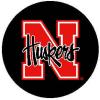
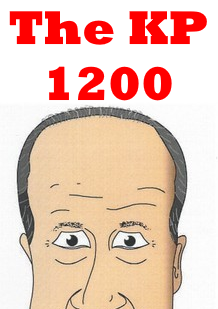
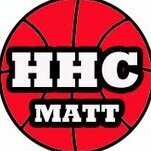
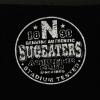
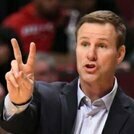
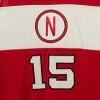
Recommended Comments
There are no comments to display.
Join the conversation
You can post now and register later. If you have an account, sign in now to post with your account.